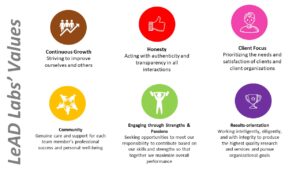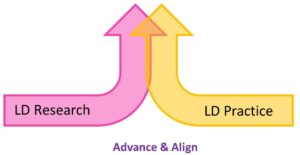 At LeAD Labs, we are guided by our Mission, Values, and Beliefs.
At LeAD Labs, we are guided by our Mission, Values, and Beliefs.
 We exist to develop leaders, researchers, and practitioners through the creation and application of evidence-based leadership research to help society pursue its full potential.
We exist to develop leaders, researchers, and practitioners through the creation and application of evidence-based leadership research to help society pursue its full potential.
This is our Mission.
 Our research and practice emphasize developing women, BIPOC, LGBTQ+ individuals, and others who do not as often hold leadership roles. We focus on developing ‘Everyday Leaders’ at all levels of for-profit, non-profit, and community organizations.
Our research and practice emphasize developing women, BIPOC, LGBTQ+ individuals, and others who do not as often hold leadership roles. We focus on developing ‘Everyday Leaders’ at all levels of for-profit, non-profit, and community organizations.
 We are faculty and graduate students with expertise in and passion for leader development.
We are faculty and graduate students with expertise in and passion for leader development.

